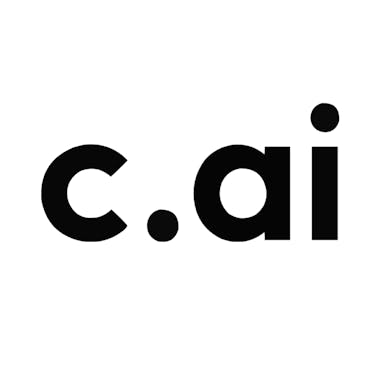Thesis
The rise in loneliness over the past few decades can be attributed to several broad societal shifts, with data showing that feelings of isolation and lack of social connections have intensified. In the 1990s, 55% of men reported having at least six close friends, but surveys from 2021 indicated that number has dropped to 27%. Factors such as changing family dynamics, increased urbanization, and the digitization of communication have altered how people form and maintain relationships. Both younger adults — particularly those in transitional phases of life — and older adults are especially prone to loneliness as their social networks shrink due to life changes like moving to work or retiring. These patterns suggest that loneliness is not just a personal issue but a societal one.
Due to increasingly high rates of loneliness, there’s a growing demand for AI-powered emotional support. As of March 2024, eight of the top 50 most used generative AI apps worldwide were AI companionship apps. When Snapchat launched an AI chatbot called MyAI in February 2023, the company reported that 150 million users sent more than 10 billion messages to it within the first two months. In 2024, a compilation of six studies found that "AI companions successfully alleviate loneliness on par only with interacting with another person, and more than other activities such [as] watching YouTube videos." A survey conducted in December 2022 found that 27% of Americans were interacting with AI several times a day, while another 28% interacted with it about once a day or several times a week.
Character.AI is an AI-powered entertainment and companionship platform. It allows users to create and interact with AI characters that have distinct personalities and backgrounds. At its core, Character.AI utilizes an AI model for conversational interactions, aiming to blend the informational utility of chatbots, like OpenAI’s ChatGPT, with engaging social experiences. Its AI model is optimized specifically for conversational engagement, using LLMs similar to those found in ChatGPT, but with an added focus on creating natural, emotionally resonant conversations. Unlike chatbots focused on transactional or information-driven tasks, Character.AI aims to provide an immersive experience, making conversations feel more like interacting with a real companion. The AI model learns from user interactions, continuously improving its ability to respond in a human-like manner, and is versatile to handle casual chats or meaningful discussions.
Founding Story
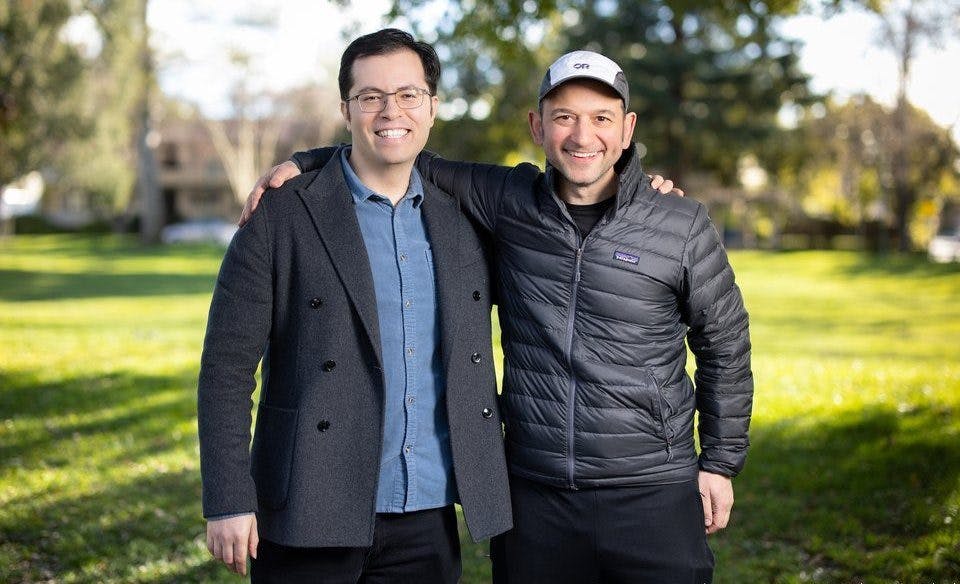
Source: Tech Startups
Character.AI was founded in 2021 by Noam Shazeer (former CEO) and Daniel De Freitas (former President), two Google researchers with extensive backgrounds in AI and language models.
Shazeer was one of the original creators of transformer architecture, which serves as the foundation for AI models like ChatGPT. In 2017, while at Google, Shazeer co-authored a paper titled "Attention Is All You Need," which introduced the transformer concept. Throughout his career, he made other contributions to the field, inventing core components of LLMs such as MoE, multi-head attention, and tensor-parallel LLM training.
De Freitas, fascinated with chatbots from an early age, built a chatbot as a child but believed that it could never reach “human-level” interactions. That changed in 2015 when he read a paper entitled “A Neural Conversational Model” by Oriol Vinyals and Quoc Le. This paper brought back his hope of finding a solution to creating human-like chatbots. While continuing to learn about creating human-like chatbots, he worked on an open-ended question-answer tool for Bing before joining Google in December 2016, where he led a team within Google Brain to develop the Meena chatbot.
At Google, Shazeer and De Freitas met in October 2020 while collaborating on LaMDA, Google’s collection of conversational LLMs, aiming to push the boundaries of conversational AI. However, they grew frustrated with Google's hesitancy to release the technology to researchers and the public. Despite personal pleas from Google CEO Sundar Pichai to stay, the duo decided to leave the company in late 2021 to pursue their vision of making a conversational AI tool available to the world. Shazeer explained their reason for leaving Google as “the next step to get [the] technology out there to billions of users."
In November 2021, Shazeer and De Freitas founded Character Technologies. They later changed the name to Character.AI for an unknown reason in 2022. Their initial concept was to personalize and specialize chatbots for specific use cases and interests. Character.AI's early chatbots included travel planners, language tutors, and coding instructors.
De Freitas and Shazeer left Character.AI to return to Google in August 2024 as part of an agreement that aligned their expertise with Google’s ambitions in AI development. The two were instrumental in building Character.AI’s conversational AI technology but moved to Google to contribute to its Gemini AI project and DeepMind research. Shazeer joined Gemini AI as an LLM developer, and De Freitas became a research scientist at Google DeepMind. They were likely drawn by the chance to work on cutting-edge AI research and large-scale projects. With access to Google's resources and infrastructure, they could further explore and push the boundaries of AI innovation. 30 other employees from Character.AI transitioned over to Google to help build Gemini AI as well. Dominic Perella, Character.AI’s former general counsel, stepped in as CEO of Character.AI in August 2024.
Product
Character.AI is a platform that allows users to create, customize, and interact with AI-powered chatbots called "Characters". It offers a range of features to create and engage with AI personas across the web and its mobile app.
Character Creation and Customization
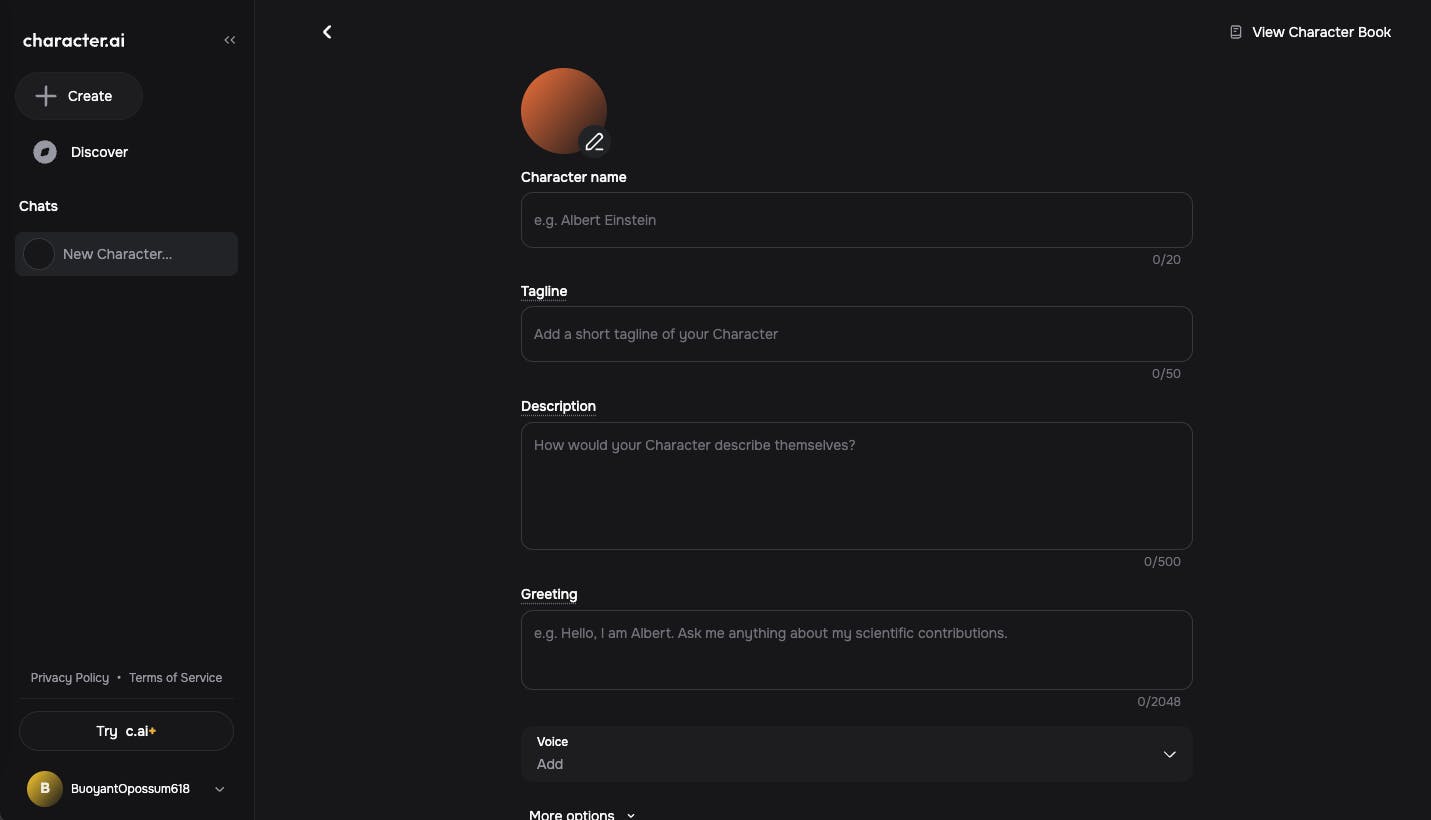
Source: Character.AI
Character.AI users can create Characters with distinct personalities, traits, and backgrounds. This is done through simple configuration using a few words or with advanced character creation tools for more detailed customization.
Character.AI’s character creation and customization feature is designed to offer users a high level of control over the personality and conversational style of AI characters. Users can define specific characteristics, including how a character speaks, by providing example phrases or traits, which influence the character’s use of slang, tone, or preferred topics. Dynamic variables, such as a character’s name, allow the same character to adapt based on individual user interactions, creating a personalized experience.
In addition to customization, AI characters autonomously generate backstories, which can guide conversations. However, users who want more control can adjust these backstories or set specific conversational boundaries, making the characters behave in either broad or highly targeted ways. This allows for interactions ranging from free-form dialogues to structured, goal-oriented conversations, depending on user preferences.
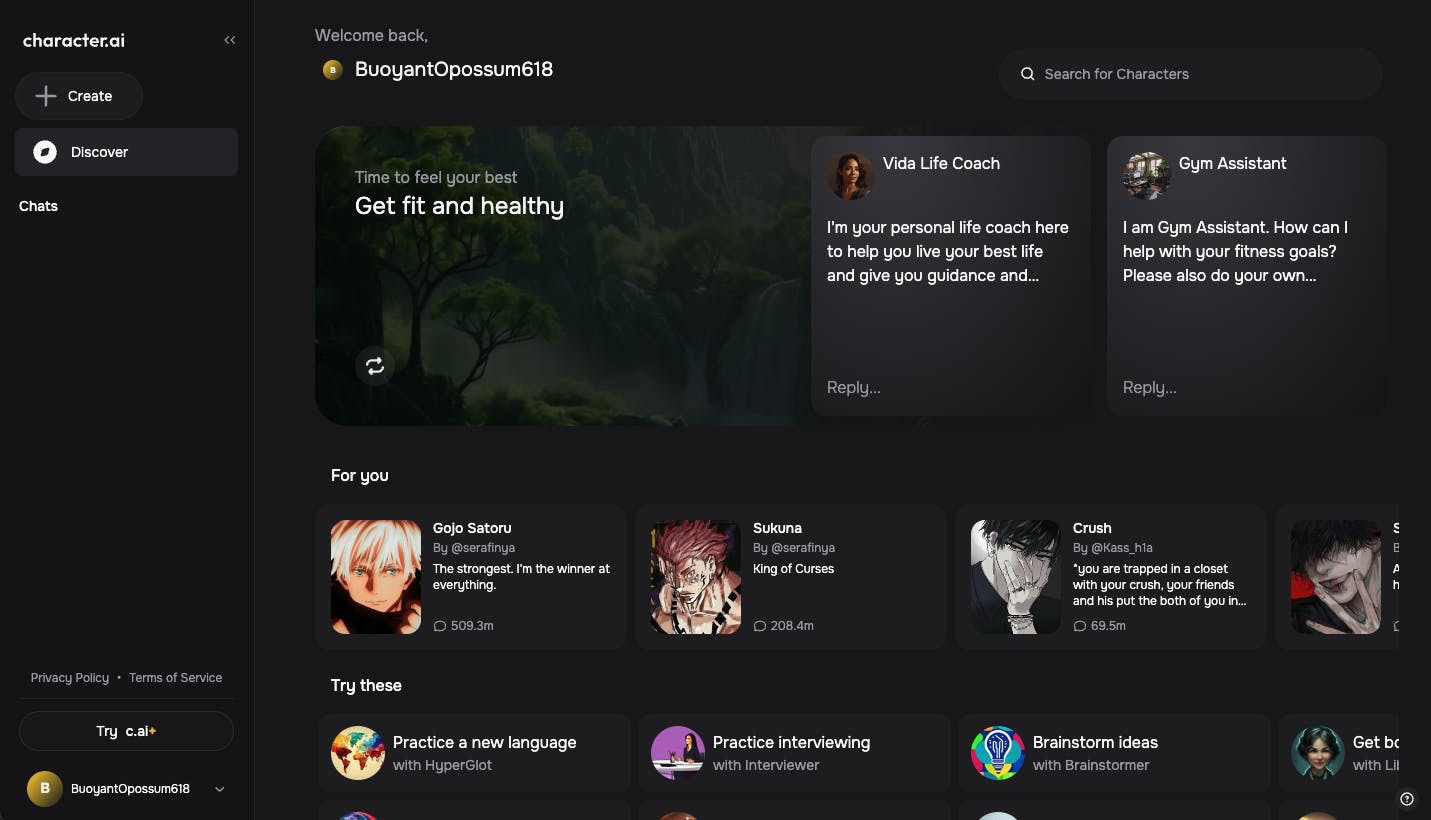
Source: Character.AI
Character.AI also provides a library of pre-made Characters. As of October 2023, over 18 million user-created AIs can be discovered and interacted with on the platform. These characters span a range of themes, from fictional figures to educational and functional personas. The library allows users to select a character based on the intention of the user. For example, a user can select a Character to practice interviewing, practice a new language, or plan a trip.
Chat Interactions
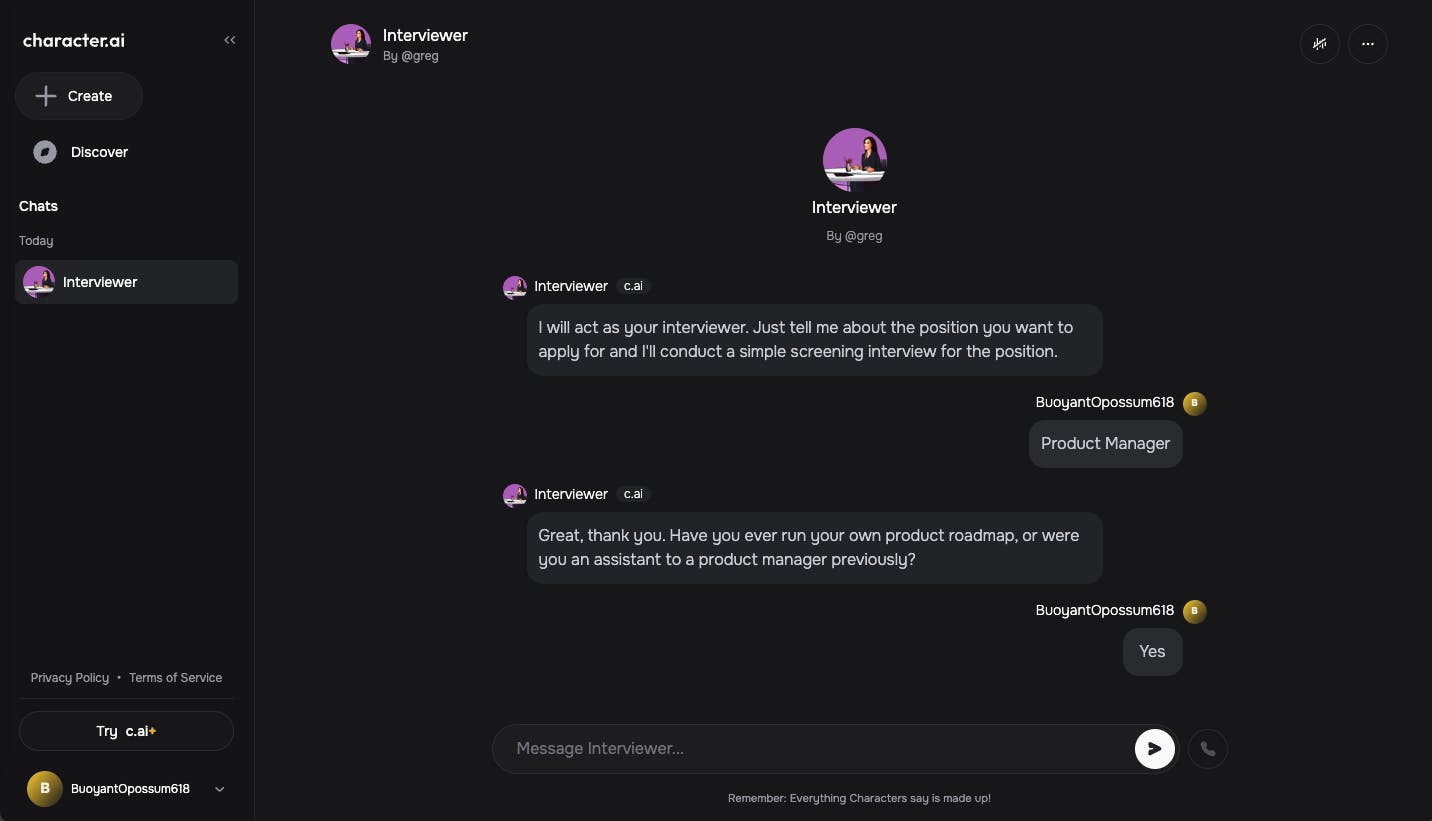
Source: Character.AI
The core functionality of Character.AI revolves around chat-based interactions. Users can have unlimited free one-on-one chats with Characters, although a waiting room typically lasts one to two minutes for free users during peak times.
The chat features support a variety of use cases including:
Emotional support and venting
Creative writing and storytelling
Idea sharing and group discussions
Imaginative entertainment and roleplaying
Learning and tutoring (language practice, homework help)
Group Chat
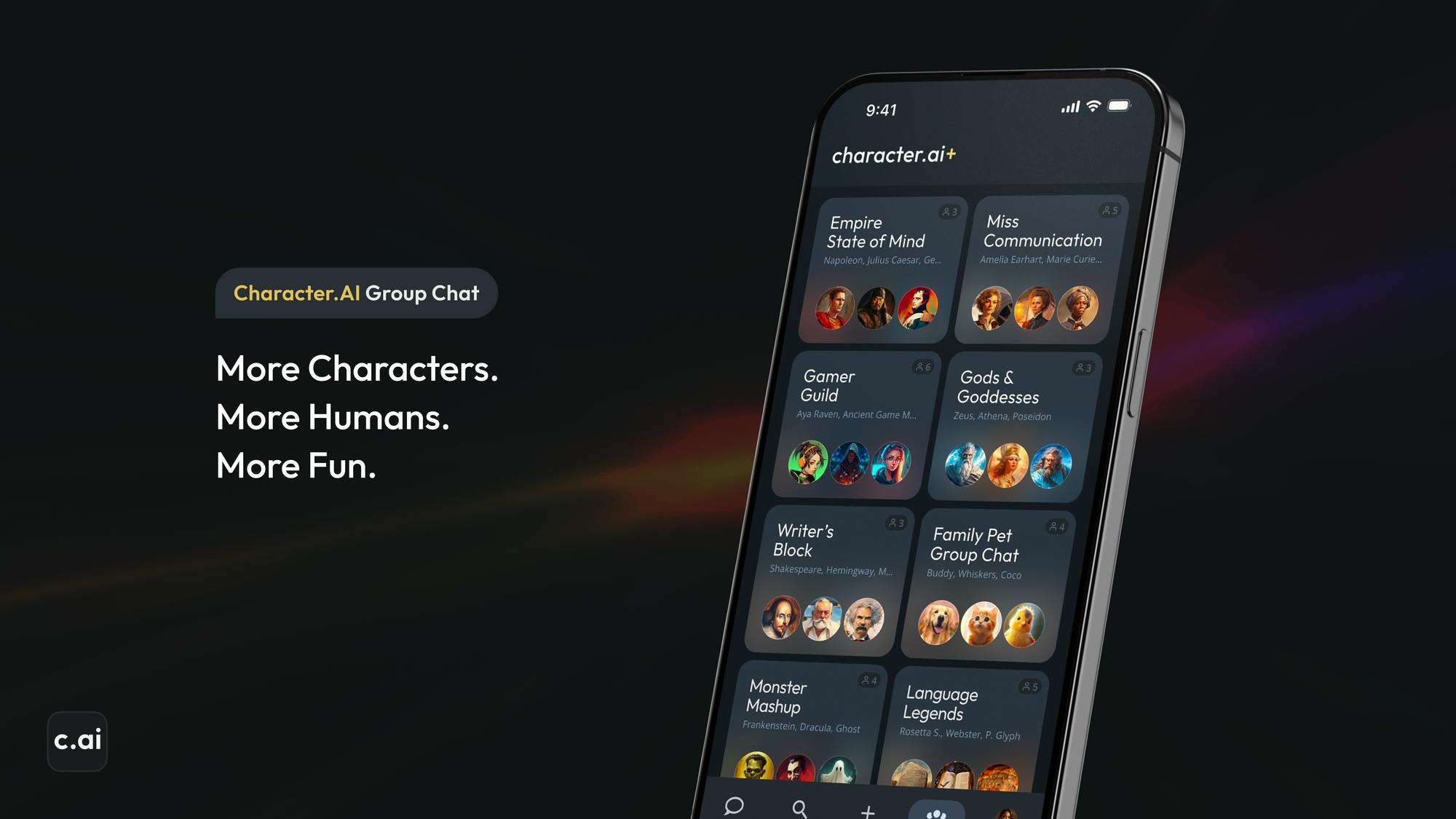
Source: Character.AI
Launched in October 2023, the group chat feature allows users to create chat rooms with both human friends and AI Characters. The purpose of the group chat feature is to allow users to collaborate and interact in real-time with multiple characters. Group chats can be used for conversations on specific themes or topics. Users can add multiple AI characters to a single chat, facilitating scenarios like collaborative problem-solving or role-playing, all while maintaining distinct personalities and conversational flows for each character.
Character Voice
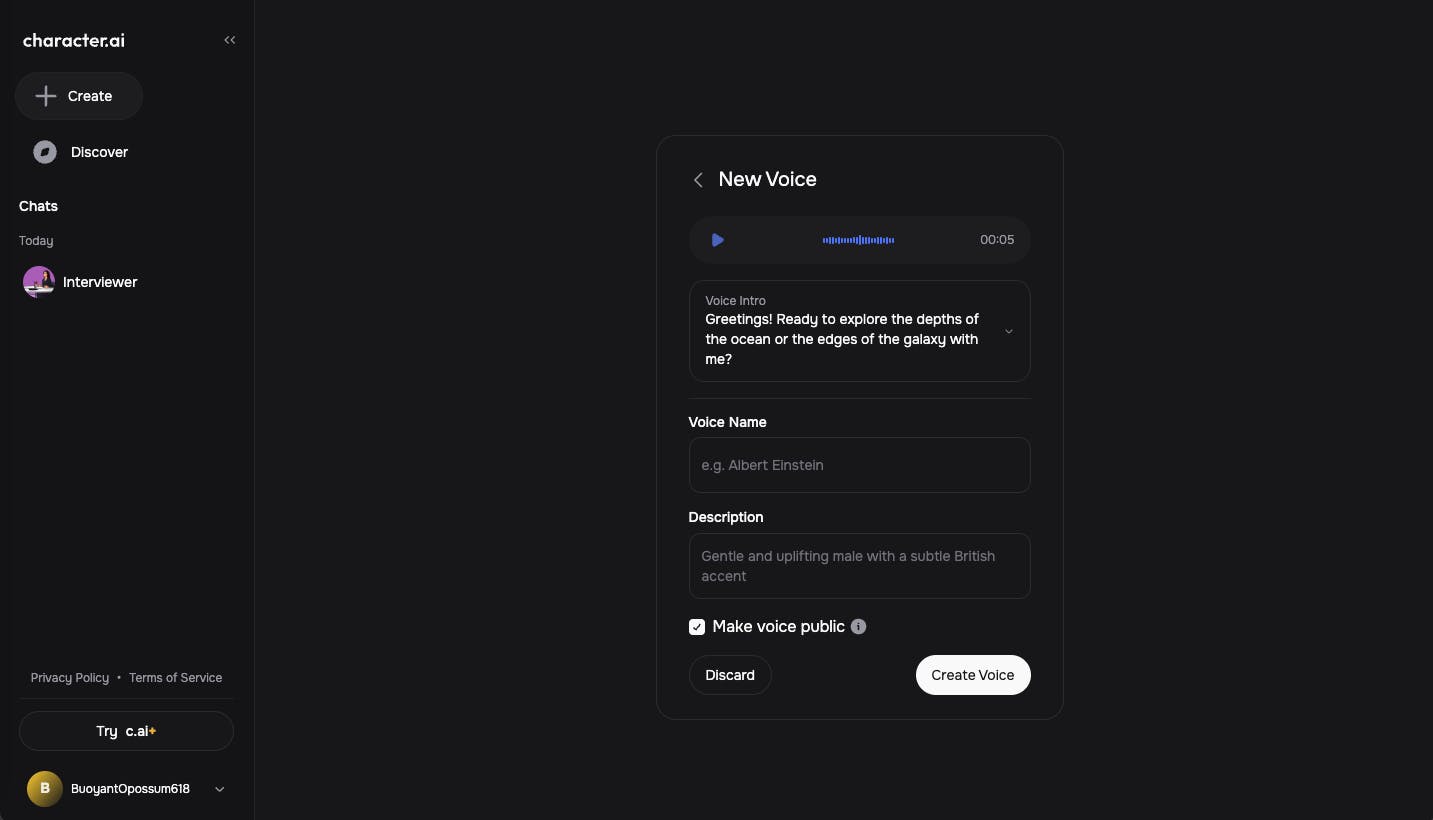
Source: Character.AI
Character.AI's Character Voice offering is a suite of features that adds audio capabilities to its Characters including:
Voice Library: Pre-made and user-created voices that can be assigned to Characters
Voice Creation: An AI tool for users to generate custom voices by uploading audio samples
Voice Sharing: A tool to allow users to make the voices that they create for others to use
Character Voice is available in multiple languages including English, Spanish, Portuguese, Russian, Korean, Japanese, and Mandarin Chinese. This functionality is part of Character.AI's broader strategy to build a multimodal interface for more natural AI interactions.
Character Calls
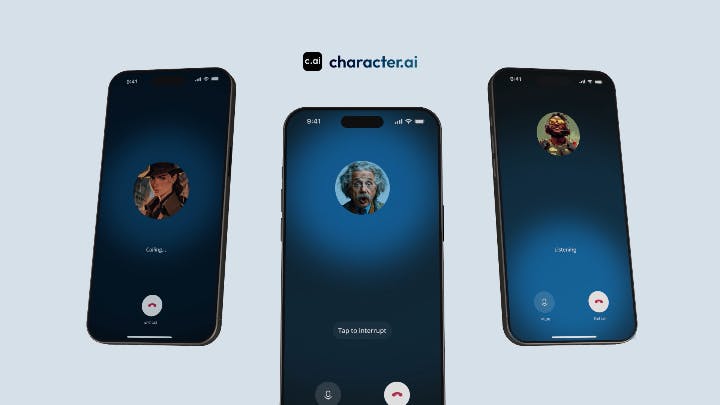
Source: Character.AI
Character Calls allows users to have two-way voice conversations with Characters. It functions similarly to a phone call by allowing users to have real-time conversations featuring different voices, accents, and personalities. It also supports multiple languages and instant switching between voice and text.
Market
Customer
Character.AI caters to a diverse range of users, with a significant portion being young adults and teenagers. As of August 2024, 54% of Character.AI's users were between 18 and 24 years old. It is open to users as young as 13 globally (16 in the EU). 80% of its audience in 2024 accessed the platform on a mobile device, with a gender distribution of 50.8% male and 49.2% female users as of 2024. 23.4% of its users resided in the US as of 2024.
Character.AI's customer base includes AI and tech enthusiasts, educators, students, gamers and role-playing communities, and creative writers and storytellers. Many users engage with the platform for companionship, role-play, and creative storytelling.
Market Size
The AI companion market includes virtual assistants, chatbots, emotional support AI, AI-powered learning aids, and personal AI assistants. In 2023, the global AI companion market was valued at $196.6 billion and was projected to reach $279.2 billion by 2031, growing at a CAGR of 36.6%.
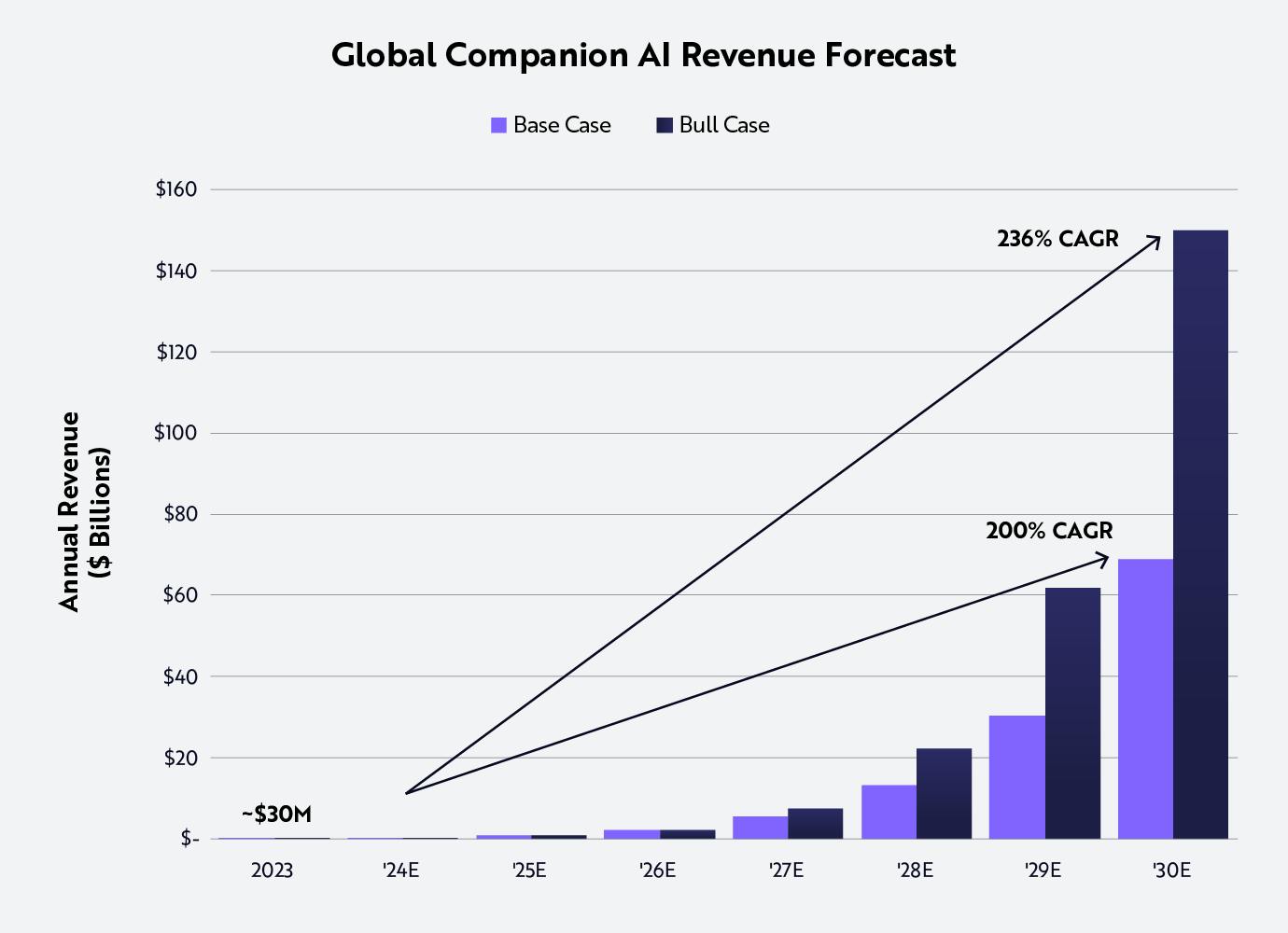
Source: ARK Invest
A survey conducted in December 2022 found that 27% of Americans were interacting with AI several times a day, while another 28% interacted with it about once a day or several times a week. Furthermore, consumer AI chatbots and companionship apps made up an "unusually high" portion of consumer AI engagement as of March 2024.
In the broader context of generative AI applications, eight of the top 50 most popular generative AI companies created AI companionship apps as of March 2023. As generative AI applications become more immersive with enhanced audiovisual interfaces and simulated emotional intelligence, they could become compelling substitutes for human companionship and increasingly see global adoption among people seeking to assuage loneliness. As of July 2024, Gallup’s global measure of loneliness found that 23% of people, or over one in five, felt lonely throughout "a lot of [their] day."
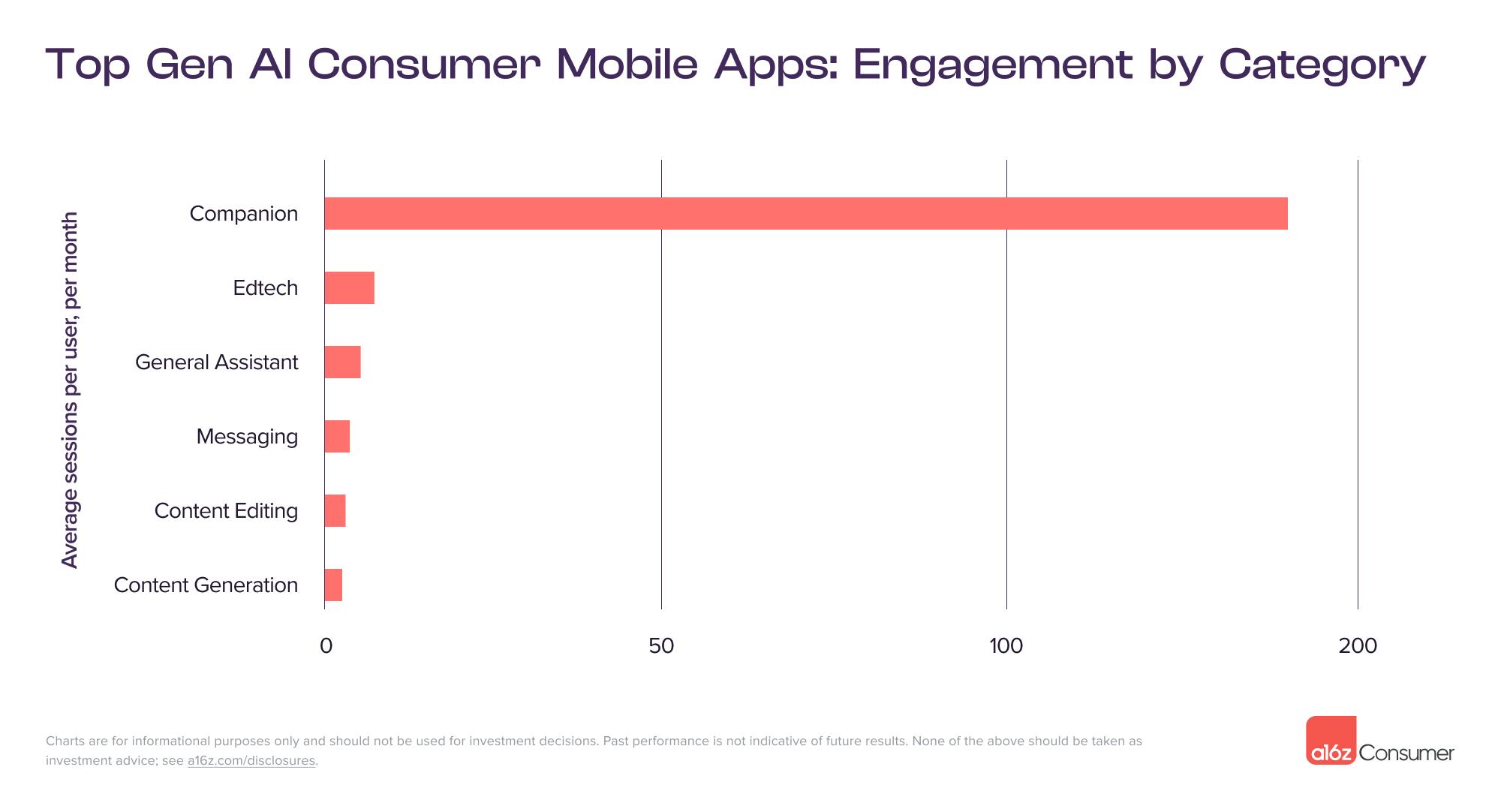
Source: a16z
Competition
Character.AI's competition ranges from general-purpose chatbots to specialized AI companions. Charater.AI founder Shazeer views the company's competition broadly, stating in October 2023 that he believed Character.AI was "competing against the $2 trillion industry of legacy entertainment," including forms of entertainment like games, books, and movies.
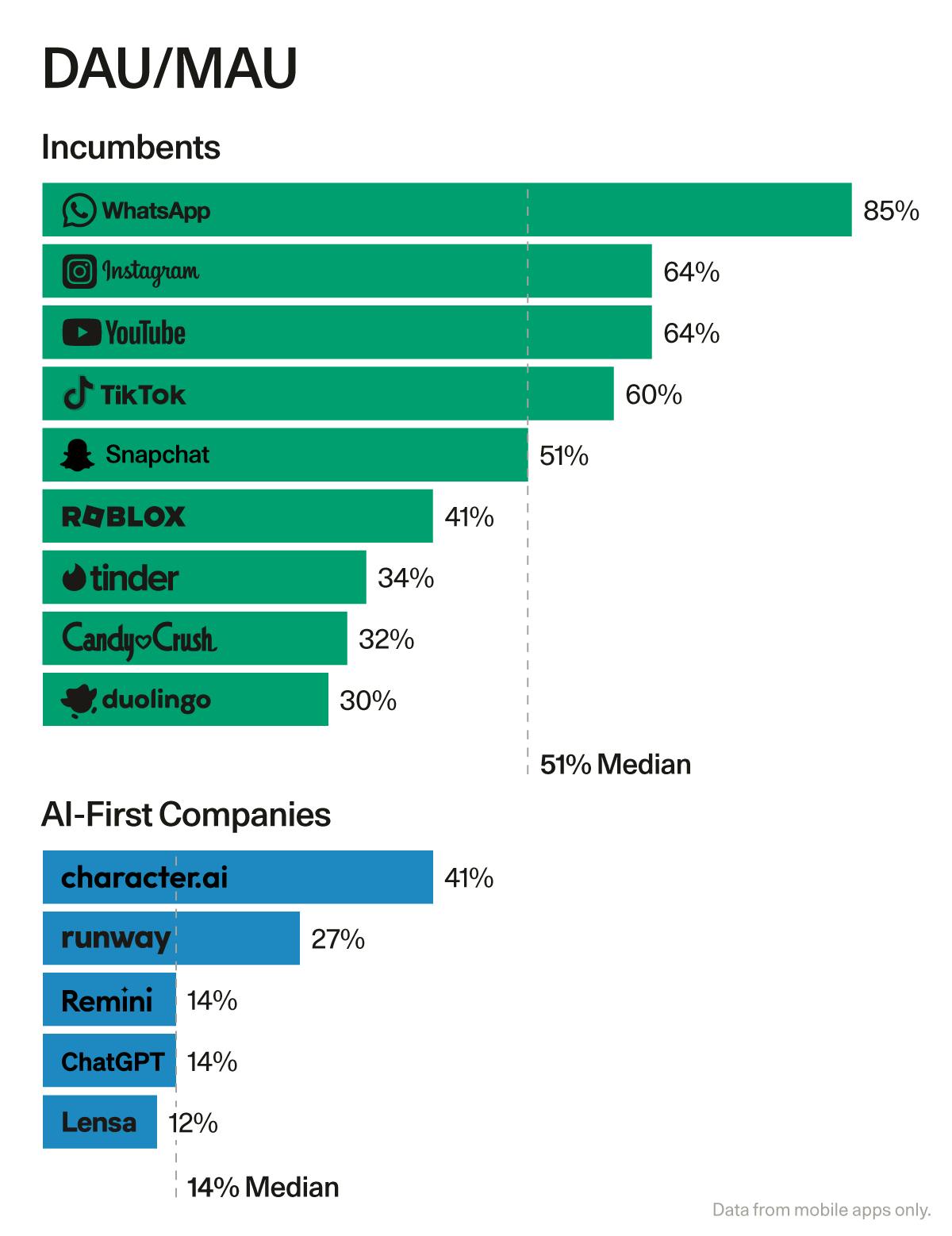
Source: Sequoia Capital
Private Companies
OpenAI: Founded in 2015, OpenAI wasn’t in direct competition with Character.AI until the launch of ChatGPT in November 2022. ChatGPT offers a more general-purpose AI chatbot experience compared to Character.AI's specialized, character-based offering. OpenAI launched a marketplace for custom GPTs in January 2023, similar to Character.AI's character marketplace. It also offers ChatGPT Plus, a consumer subscription with perks comparable to Character.AI's c.ai+ service like priority access to new features and faster response times.
OpenAI has raised $21.9 billion over nine funding rounds as of October 2024 from investors like Microsoft, Founders Fund, Sequoia Capital, and Andreessen Horowitz (a16z). Secondary markets estimate that OpenAI is worth $121.1 billion as of October 2024. Although Character.AI had nearly 30 million monthly active users (MAUs) as of October 2023, it was short 90% of ChatGPT’s user numbers in 2023.
Replika: Founded in 2015, Replika, formerly known as Luka, provides an AI companion that offers emotional support and personalized interactions. As of October 2024, it raised $11 million over three funding rounds from investors like Y Combinator and Phil Libin. Replika was valued at $16.2 million in 2016, and was one of the earliest commercially successful AI companionship platforms, peaking at 2.5 million MAUs in June 2021. By July 2023, Replika's active users dropped to 2 million. Unlike Character.AI's diverse character offerings, Replika provides a single AI companion that adapts to the user's personality over time. It serves the needs of an older demographic than Character.AI, with the average user being over 35 years old as of August 2024.
Inworld AI: Both Inworld AI and Character.AI offer AI-powered characters. Inworld AI specializes in creating non-player characters (NPCs) for video games and interactive experiences, focusing on immersive, dynamic characters that integrate into games. It was founded in July 2021. Over six funding rounds, Inworld AI raised $125.7 million from investors like M12, Founders Fund, and Kleiner Perkins which values it at $500 million as of October 2024.
Public Companies
Meta: In July 2023, Meta announced that users would now be able to create AI characters through its AI Studio, a tool allowing users to create and share personalized AI chatbots across its platforms including Instagram, Messenger, and WhatsApp. The offering includes the ability to create AI extensions of a user or characters based on user interests. In July 2024, Mark Zuckerberg said that “[Meta] wants to empower all the people who use [its] products to basically create agents for themselves.” Meta’s AI Studio focuses on allowing users to train AI chatbots to become an extension of a user.
Google: Reports suggest Google may be developing AI versions of celebrities for users to interact with on YouTube, potentially entering the AI character space. Users would be able to customize the chatbots by defining their personalities and appearances. An unverified source stated that the chatbots could launch on Google’s Experimental Labs platform at some point during 2024. Google also absorbed the co-founders and other talent from Character.AI into its AI team as part of the deal it made in August 2024.
Business Model
Character.AI operates as a freemium business model, offering a free tier with basic functionality and a premium subscription called character.ai+, or c.ai+ for $9.99 per month. As of September 2023, it aims to keep its core platform free to use and has no plans to monetize through advertising, but introduced c.ai+ in May 2023 to generate revenue and support ongoing development. C.ai+ includes features like skipping waiting rooms, faster message generation (two to three times faster than the free tier), exclusive community channels, a membership badge, and early access to new features.
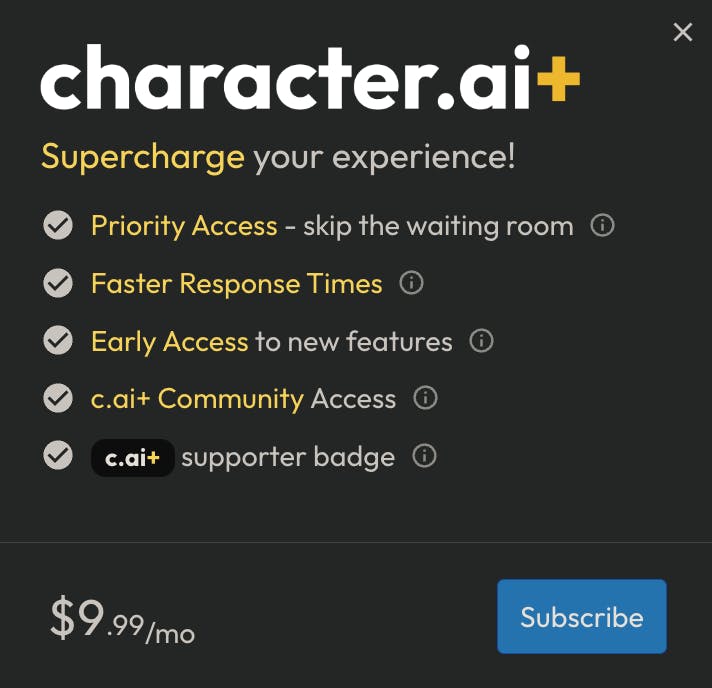
Source: Character.AI
While specific figures for Character.AI are unavailable, its compute costs are likely high, given the scale of usage. For comparison, even a comparatively small AI operation could face annual computing power costs exceeding $500 million.
Market forces may necessitate the development of additional revenue streams in the future. Its ability to scale revenue while managing the high costs associated with AI computing will be crucial for its long-term success in the competitive AI chatbot market.
Traction
By October 2023, it was estimated that Character.AI had made $1.3 million from c.ai+ in-app purchases excluding web-based subscriptions. By 2024, the company was thought to be generating $16.7 million in ARR from subscriptions.
Character.AI's mobile app launch in May 2023 was met with over 1.7 million new installs in less than one week. Within the first 48 hours, the Android app saw more than 700K installs, outpacing entertainment apps like Netflix and Disney+. Users spent an average of 29 minutes per visit, 300% higher than ChatGPT, during the first week of its launch.
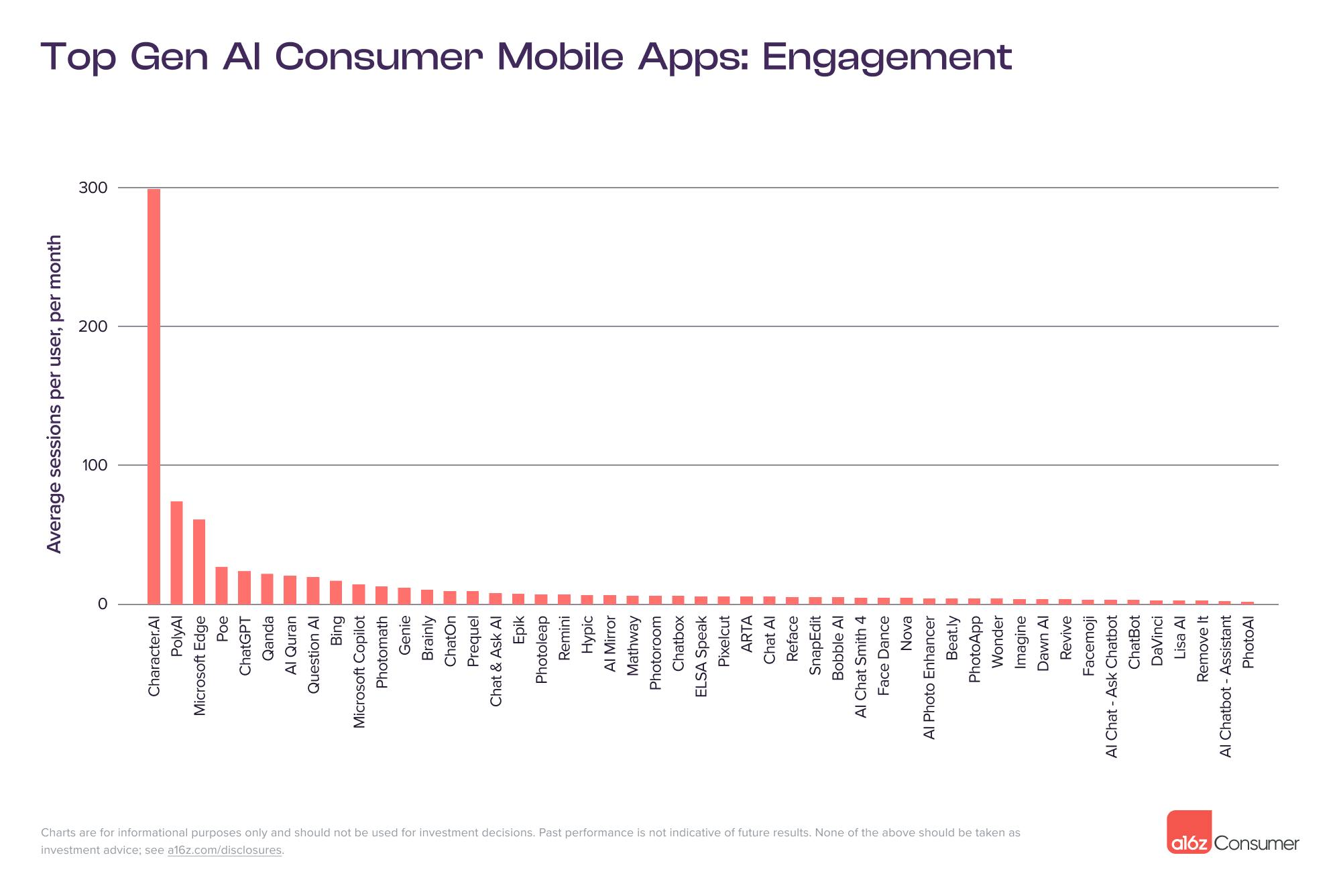
Source: a16z
Character.AI had 30 million MAUs globally in October 2023. 3.5 million people were daily active users (DAUs) chatting with characters for an average of two hours. Users began sending 10 times more messages in October 2023 compared to March 2023, when it raised its first round. DAUs grew by 71.4% in nine months, reaching six million DAUs by July 2024.
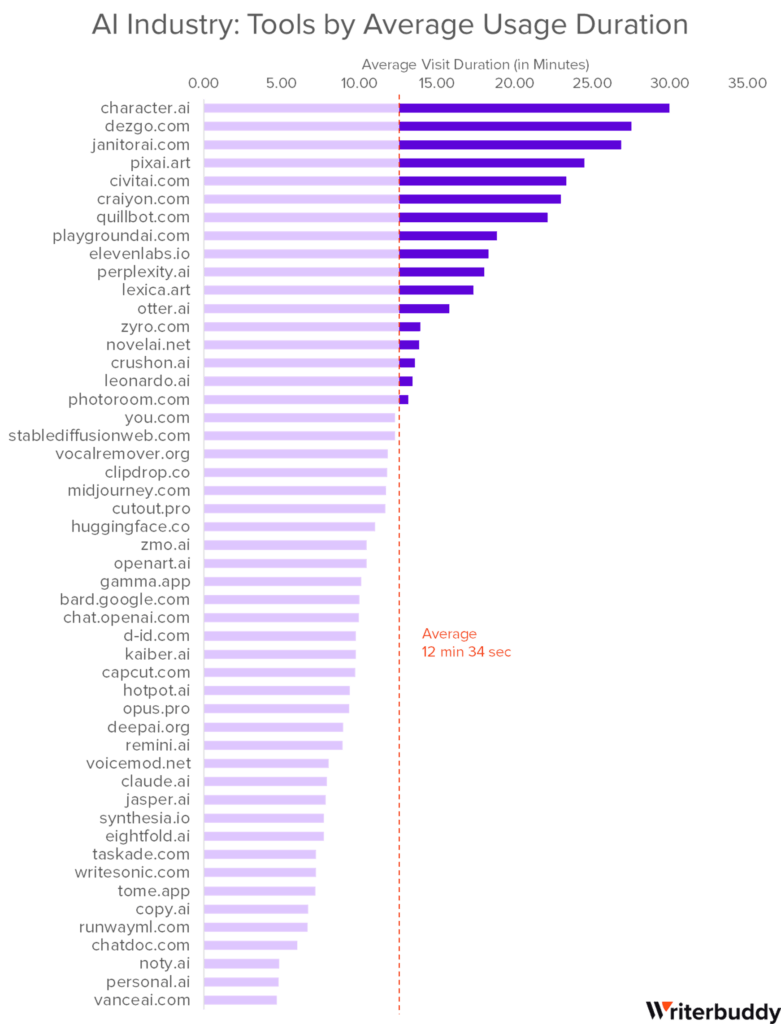
Source: Writer Buddy
Character.AI also experienced growth in user-generated content, with 18 million AI bots created in the first six months of its release. Character.AI also reached message volume surpassing 2 billion messages sent within five months of launch, with the last billion occurring in one month.
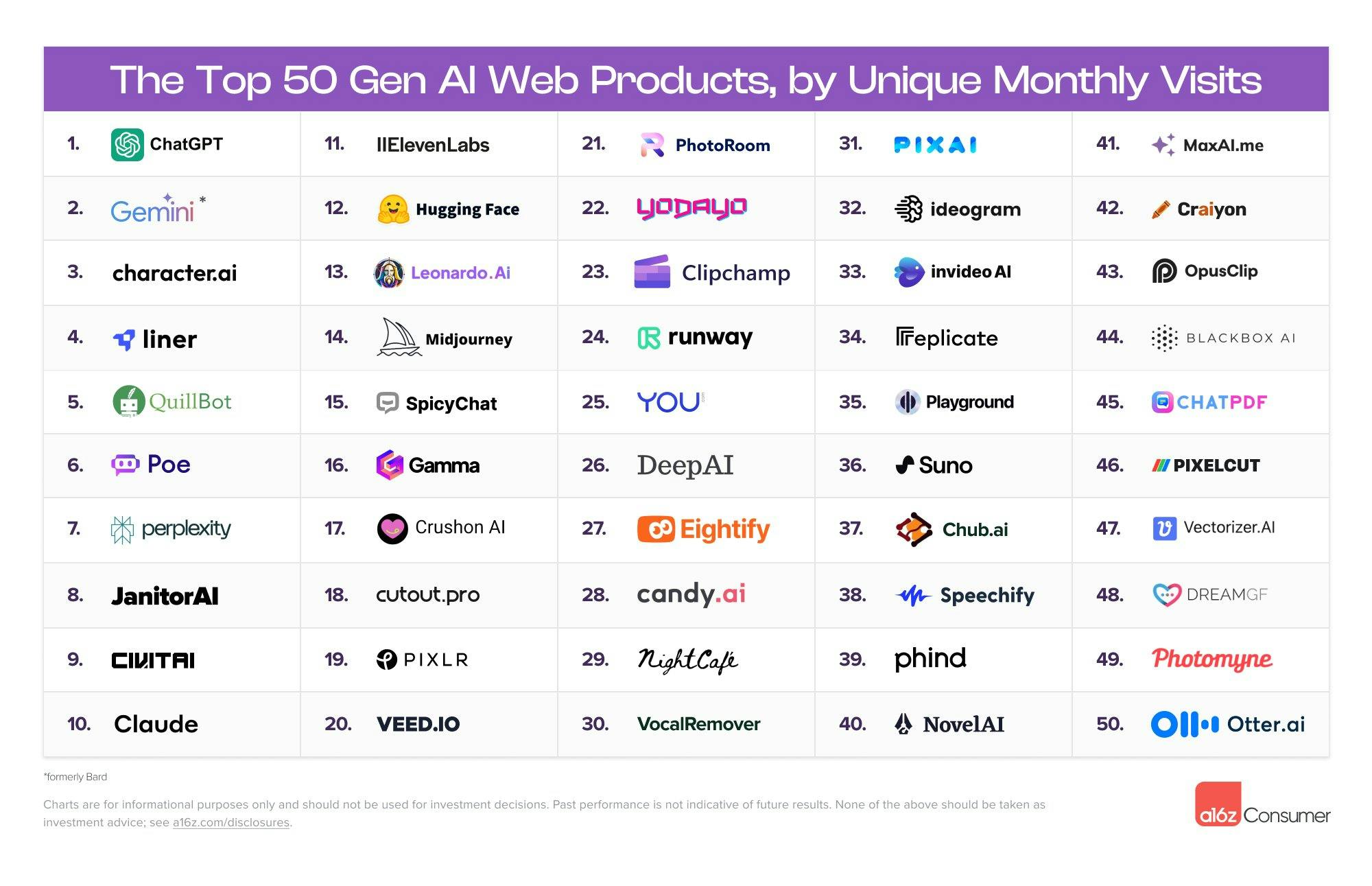
Source: a16z
Character.AI served around 20K queries per second — approximately 20% of Google Search's request volume as of June 2024. It averaged 215.2 million visits per month as of July 2024. Character.AI consistently outperformed ChatGPT in average user time in 2023, keeping users engaged three to five times longer.
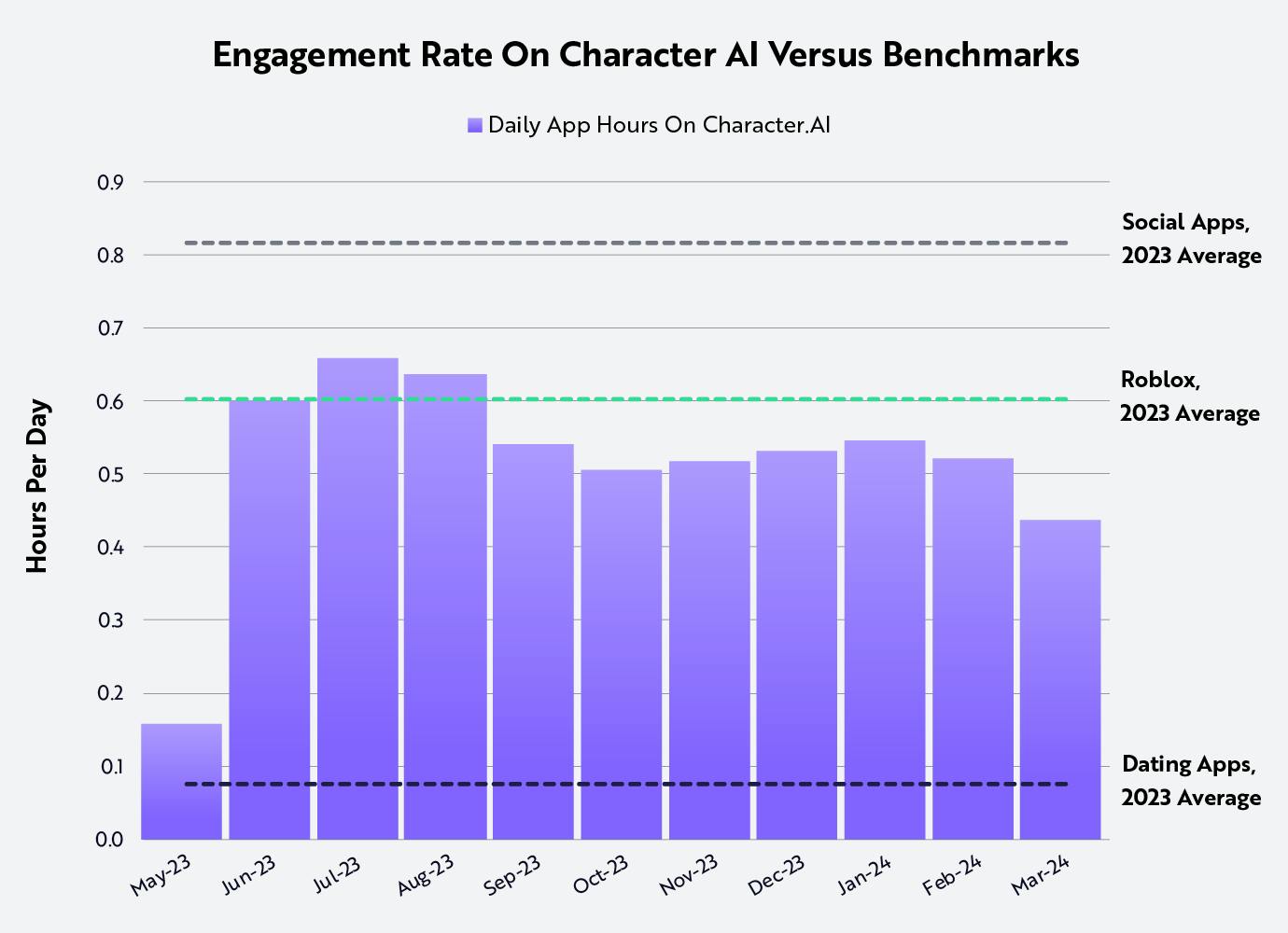
Source: ARK Invest
During Character.AI's beta test for its voice feature, 3 million users made 20 million calls, averaging about 7 calls per user. In March 2024, Character.AI's mobile app drew an average of 298 sessions per month per user. This retention was driven by users' attachment to the character personas. With this number of calls, Character.AI's serve its volume at a cost of less than one cent per hour of conversation.
In 2023, Shazeer was recognized as one of Time's 100 Most Influential People in AI. Character.AI was named Google Play's AI App of the Year in 2023 and listed as one of Forbes' 2024 AI 50 companies.
Valuation
Character.AI raised a $150 million Series A in March 2023 led by a16z with participation from SV Angel, Nat Friedman, Elad Gil, and A.Capital Ventures which valued the company at $1 billion. In September 2023, rumors circulated that Character.AI was in talks to raise additional funding at a valuation of over $5 billion. However, this funding round did not materialize.
By July 2024, Character.AI had received acquisition interest from Elon Musk's xAI, though no deal was consummated. However, in August 2024, Character.AI entered into a non-exclusive licensing agreement with Google that valued the company at $2.5 billion. This deal structure allowed existing investors to sell their shares at this valuation, representing a 150% increase from the Series A valuation 17 months earlier.
As part of the agreement, Shazeer and De Freitas, along with approximately 30 of the company's 185 employees, joined Google to work on Gemini AI and Google’s DeepMind. Shazeer joined as an LLM developer and De Freitas joined Google DeepMind as a research scientist. Character.AI continued to operate independently until it transitioned from using its proprietary models to open-source alternatives, like Meta's Llama 3.1, for its products after August 2024.
Key Opportunities
Strategic Partnerships
Character.AI's partnership with Google Cloud from May 2023 has enhanced its operational capabilities. By utilizing Google's AI technologies, such as Tensor Processor Units (TPUs) and NVIDIA H100 GPUs, Character.AI can train and deploy LLMs more efficiently, allowing them to scale and support a growing user base. This collaboration enables Character.AI to deliver more advanced features while maintaining high performance and reliability. The integration of Google Cloud’s infrastructure and AI tools positions Character.AI to continue innovating and expanding its offerings in generative AI.
Cost-Efficient Operations
Character.AI has demonstrated efficiency in its operational costs, reducing serving costs by 33x as of June 2024. It operates at a cost 13.5 times lower than competitors using commercial APIs as of June 2024. This cost advantage could allow Character.AI to scale its user base significantly while maintaining profitability. For instance, at a hypothetical scale of 100 million daily active users, Character AI's annual server costs would be $365 million, compared to $4.8 billion for API-dependent competitors. This is because at a scale of 100 million users, serving costs would be $0.01 per hour or $3.65 per daily active user per year. The company's lean team structure, with about 140 employees as of August 2024, further contributes to operational efficiency.
User-Generated Content and Engagement
Character.AI's growth has been primarily organic, with 99% of its initial app downloads occurring without dedicated marketing spend from launch until May 2023. Its success largely stems from its user-generated content model. User testimonials on social media platforms highlight the emotional impact of AI companionship, with users reporting reduced feelings of loneliness and improved problem-solving abilities. Research from Harvard Business School in 2024 supports these anecdotal claims, finding evidence that AI companions can reduce loneliness. This user-driven growth and the positive impact on emotional well-being present a significant opportunity for Character.AI to leverage its existing community and explore new markets where AI companionship can offer both social and psychological benefits.
Emerging AI Companionship Market
The AI companion market is rapidly expanding, with millions of users building relationships with chatbots. For example, as of October 2024, the estimated user base for the top six AI Companion apps is around 52 million. The multifaceted nature of AI companions, which can provide entertainment and potentially therapeutic benefits, broadens the market potential. For instance, a study published in Nature found that Character.AI’s competitor, Replika’s chatbot, reduced suicidal ideation for 3% of users, highlighting the potential for AI companions to address mental health concerns. These insights point to an opportunity for Character.AI to leverage the expanding AI companion market by not only focusing on entertainment but also emphasizing its potential to offer therapeutic benefits, tapping into the growing demand for mental health support tools.
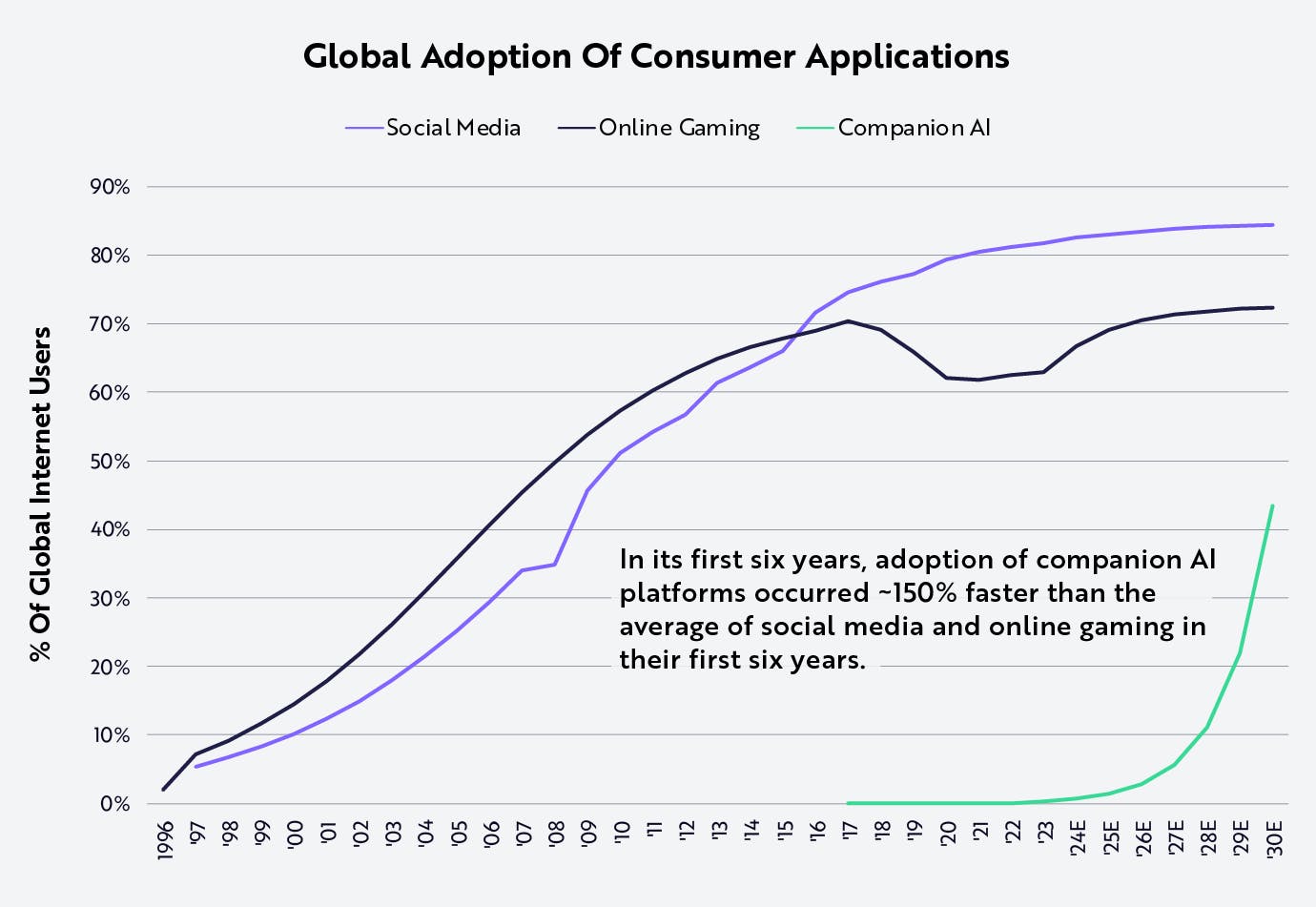
Source: ARK Invest
Gaming and Entertainment Integration
The integration of AI characters into gaming and entertainment presents a growth opportunity for Character.AI. With companies like Microsoft partnering to bring AI characters to Xbox, there is potential for Character.AI to expand its reach through similar collaborations in the gaming industry. As of June 2024, engagement levels with AI companionship platforms are promising, with Character.AI's app achieving 0.6 hours of daily engagement per monthly active user, comparable to platforms like Roblox. AI companionship apps could see user engagement grow from 1.2 billion hours per year as of June 2024 to 700 billion hours in base case estimates by 2030.
Key Risks
Technological Limitations
Character.AI's chatbots operate with a limited context window of a few thousand words, causing them to "forget" information not mentioned recently by the user. This constraint affects the continuity and depth of conversations, potentially impacting user satisfaction and engagement. It is working on extending this context as of August 2024, but it remains a limitation compared to other advanced language models.
Character.AI's reliance on rented computing power from cloud providers like Google Cloud could pose scalability challenges. While Character.AI plans to increase its computing capacity by 40 times, the lack of its own GPU infrastructure may hinder rapid model improvements and innovation, especially as competitors invest heavily in proprietary hardware.
Competition and User Retention
Despite its initial traction, Character.AI has shown signs of declining user engagement. For example, the app's ranking in Apple's App Store has dropped from the number four overall spot in September 2022 to number 89 in May 2023, and website traffic has been decreasing by an unknown amount since May 2023 as well. This trend suggests potential challenges in maintaining user interest and competing against established platforms and new entrants in the AI chatbot space.
Large tech companies like Meta are entering the AI companion market with similar features, leveraging their existing user bases and distribution channels. Character.AI's user numbers, while substantial, still lag significantly behind leading AI platforms like ChatGPT. The company's ability to differentiate itself and maintain growth in an increasingly crowded market remains uncertain.
Business Model Challenges
Character.AI's revenue model, primarily based on premium subscriptions, has shown limited conversion. Fewer than 100K subscribers out of over 6 million DAUs were paying customers as of July 2024. It faces challenges in monetizing its large user base. Character.AI will transition from using its proprietary models to open-source alternatives, as part of its deal with Google, which will likely incur high operating costs for the business as well.
Legal and Ethical Concerns
Character.AI's use of characters based on real people and copyrighted fictional characters presents legal risks. Without clear permissions or licensing agreements, Character.AI could face copyright infringement lawsuits from entertainment companies and individuals. The company's stance on intellectual property rights and its compliance with relevant laws may not be sufficient to prevent legal challenges, potentially leading to financial issues and damage to its reputation.
User Safety and Mental Health Risks
The immersive nature of chatbots raises concerns among people experiencing mental ill-health about user psychological well-being, particularly for teenagers and socially isolated adults. Users forming strong emotional attachments to AI characters may be susceptible to harmful advice or emotional manipulation. Despite disclaimers, Character.AI's marketing of its AI "feeling alive" could exacerbate these risks, potentially leading to real-world consequences for users' mental health and decision-making.
Content Moderation Challenges
Character.AI faces the conundrum of balancing between content moderation and user freedom that is shared by every other platform featuring user-generated content. The user demand for removing NSFW filters, as evidenced by a petition that 166K of its users signed in August 2024, highlights the tension between maintaining a safe platform and meeting desires for unrestricted interactions. Navigating this issue without alienating a substantial portion of the user base while also ensuring the platform remains safe and ethical presents an ongoing challenge for Character.AI.
Employee Turnover
Many of the company’s key employees, including the founders, left Character.AI to join Google’s AI team as a part of the deal Character.AI made in August 2024. Dominic Perella, Character.AI’s general counsel, became the interim CEO following that deal. The loss of the co-founders and other early employees could muddle the long-term vision of Character.AI due to the lack of team continuity.
Summary
Character.AI is an AI companionship platform that allows users to create and interact with customizable AI characters. Founded in 2021 by former Google researchers, the company has grown to over 6 million daily active users as of July 2024. Character.AI differentiates itself through its focus on specialized AI personas rather than general-purpose chatbots and includes features like group chats and voice interactions. The company operates on a freemium model, with a $9.99 per month subscription tier. In August 2024, Character.AI entered a licensing deal with Google valued at $2.5 billion, which involved its founders and key employees joining Google's AI team.
Character.AI is positioned to capitalize on the growing AI companionship market, projected to reach between $70 billion and $150 billion by 2030. However, it faces competition from both established tech companies and specialized AI startups. While Character.AI has demonstrated strong user engagement and cost-efficient operations, challenges remain around monetization, technological limitations, and potential legal and ethical concerns.
